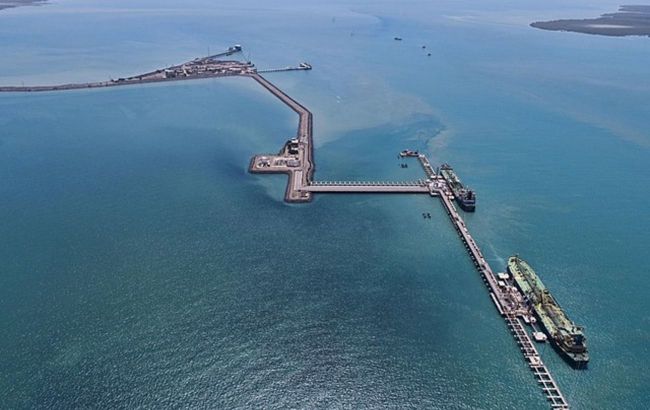EU sanctions on Rosneft force Indian firms to cut ties with Nayara – Reuters
 Photo: Indian companies refuse to cooperate with Nayara Energy (wikimedia.org)
Photo: Indian companies refuse to cooperate with Nayara Energy (wikimedia.org)
Sanctions pressure from the EU on Russia’s energy sector has begun to affect the Indian company Nayara Energy, which is connected to Russia’s Rosneft, according to Reuters.
According to Reuters, the owners of three tankers that cooperated with Nayara initiated the termination of contracts due to fears of secondary sanctions.
According to the agency’s report, the companies Seven Islands Shipping Ltd and Great Eastern Shipping Co (GESCO) approached Nayara with a request to remove three vessels — Bourbon, Courage, and Jag Pooja — from the contracts.
The reason is the new EU sanctions concerning enterprises with Russian capital.
Nayara Energy is the third-largest oil refinery in India, with a controlling stake owned by Russia’s Rosneft. The company not only supplies petroleum products to the domestic market but also actively exports them.
Effect of the sanctions
The package of EU sanctions adopted on July 18 has already forced Nayara to reduce production at its refinery in western India — with a capacity of 400,000 barrels per day — due to difficulties with fuel storage.
In addition, the outlet’s sources reported that the tanker Sanmar Songbird, which was supposed to pick up cargo from Vadinar (where Nayara’s refinery is located), was redirected to another plant — MRPL — due to insurance problems.
Positions of the parties
Nayara publicly criticizes the sanctions, calling them “unfair and unilateral.”
At the same time, the company has not yet commented on the situation with the contract terminations. Representatives of Seven Islands, GESCO, HPCL, and Sanmar also did not respond to journalists’ requests.
According to Reuters, the CEO of Nayara recently resigned.
EU sanctions against Russia
The EU adopted its 18th package of sanctions against Russia. The list includes 22 banks, four companies affiliated with the Russian Direct Investment Fund, 26 entities linked to Russia’s military-industrial complex, and others.
The EU’s top diplomat, Kaja Kallas, called the 18th sanctions package against Russia one of the strongest since the beginning of the full-scale war.
According to the head of Estonia’s Ministry of Foreign Affairs, Brussels has already started working on the next package of sanctions.

